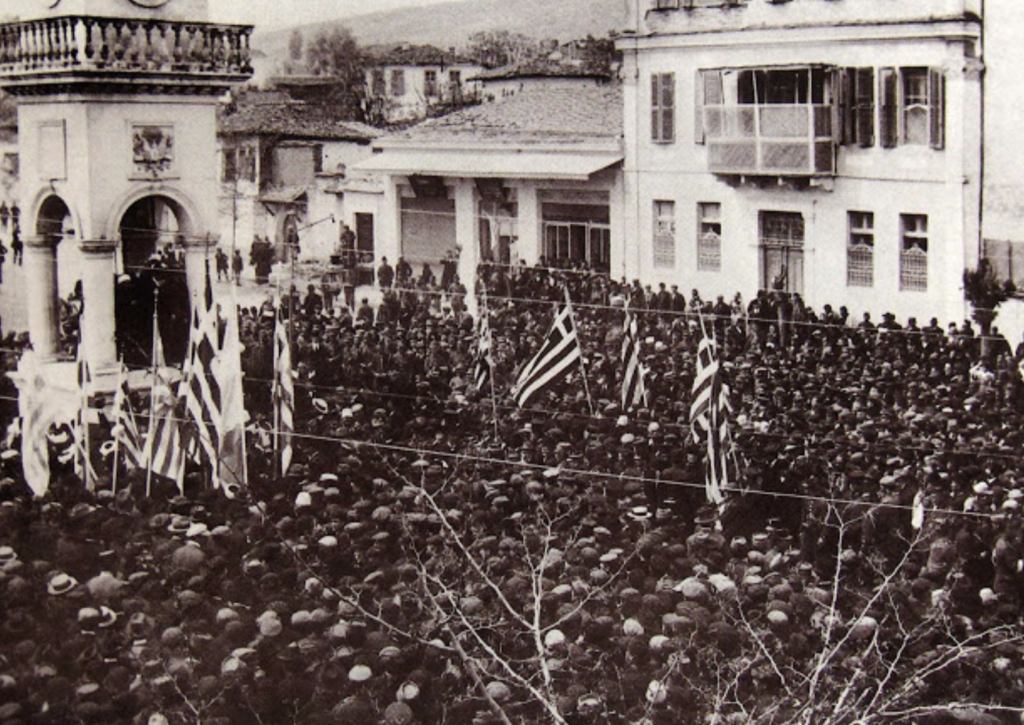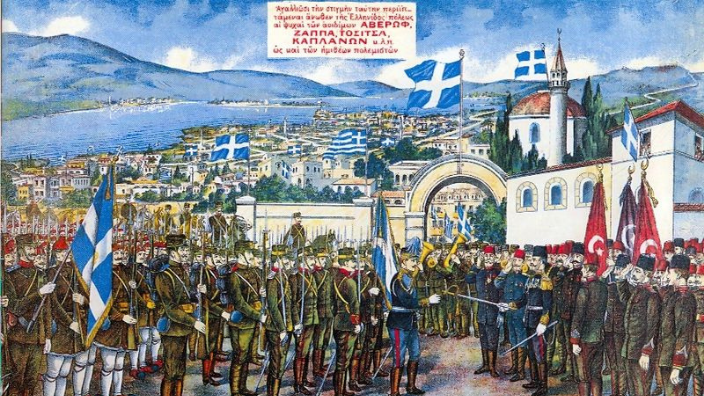At the outbreak of the First Balkan war, the Army of Epirus was rendered mainly defensive, since most of the Greek military units were sent to reinforce the Macedonian Front.
Following Thessaloniki’s annexation, the Ottoman Empire sought truce with the Balkan Allies.
The Greek government conceded to participate in peace deliberations but clarified that since Epirus had not yet been liberated, Greece would be at war with the Ottoman Empire until the final peace Treaty.
On October 19th 1912, the Army of Epirus abandoned its defensive role and attacked the Turkish Army under the leadership of Major Sapountzakis. Even though the Greek Army was outnumbered, Preveza was conquered and an Ottoman attack at Pente Pigadia was repulsed.

Still, there were enormous difficulties preventing the Liberation of Ioannina.
The Ottoman Army’s numerical superiority and the fact that it had moved to the forts of Bizani,-which historians describe as “strongly fortified”-, combined with the extreme cold and the lack of supplies, prevented the Greek Army from initiating an offensive.
Victories in Macedonia allowed the main bulk of the Army of Thessaly to move south and reinforce the Army of Epirus. Crown Prince Constantine assumed the Command of the Army and demanded a peaceful surrender of the city. Essat Pasha did not accept the Crown Prince’s offer and prepared for attack.
With careful strategic maneuvering and astounding heroism, the Greek Army conquered Bizani and forced Essat Pasha to surrender the city of Ioannina on February 21st 1913.

